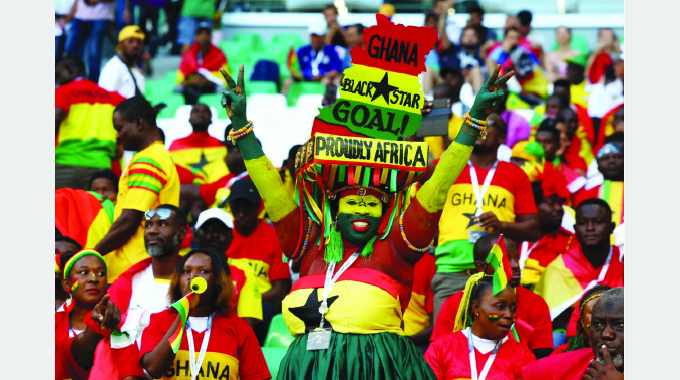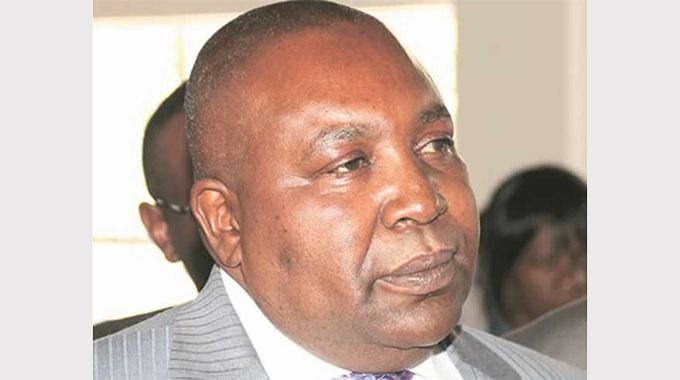Cultural healing lessons from Qatar World Cup

Gibson Nyikadzino-Correspondent
In his 1993 article titled, “The Clash of Civilisations” the late Samuel Huntington was perspectival in predicting that the world would one day witness clashes between a Western civilisation and other major civilisations, in particular the Islamic and Confucian civilisations.
As such, his arguments have come to pass since the turn of the millennium as cases to do with religion, women’s rights, family values and cultural issues dominate the daily discourses all over the world than it has happened before.
Since 2001, the West has been Islamophobic in its strategy to discredit Islam as a religion and Muslims as a people.
The September 11 attacks and the subsequent invasion of Afghanistan evidently provide dimensions on how the West has used Islam to infer and equate it to terrorism.
Alternatively, the defeat of the US by the Taliban in 2021 also show how strong the culture of the Arab world is.
In the name of human and women’s rights, the Western world has tried hard to export non-family values to other societies.
The subjects of abortion, sex change and the LGBTQI advocacy are being prioritised as a result of choice and not biology, through the law and not natural conviction and through pressure from interest groups opposed to the collective conscience of the human race.
Huntington made strong and valid arguments that culture was going to be the main source of conflict.
In the post-industrial world, cultures are attempting to further establish their own unique identities in defence from globalisation, which essentially is the domination of the world by Western values.
The West has a new phenomenon called the “cancel culture”.
Cancel culture is a movement to remove the esteem of a person, group or a country driven by offensive intentions.
In the other context, cancel culture also entails rewriting of history and stopping acknowledgement of facts because they are regarded as offensive to a racial, religious, ethnic or economic group.
It is the rewriting of history to make people comfortable by overlooking facts, good or bad.
Why is Qatar a target?
Sport is a forceful element of soft-power diplomacy. It is sine qua non (an essential condition that is absolutely necessary) for states to create areas of commonality.
Even at a national level, sport has been used to unite groups with different ideological beliefs.
Such is the power of sport that in 2005 former Ivory Coast’s captain of the national football team Didier Drogba had to plead for peace ahead of the 2006 World Cup in Germany after rebels had attacked various cities in the West-African country on September 19, 2002.
His plea led to a peace agreement between government and rebels in 2007. A few months ago, Qatar was a nation close to the heart of the Western countries after they thought it would help Europe with gas following supply disruptions as a result of the US’ proxy war in Ukraine against Russia.
Qatar, as one of the world’s top natural gas exporters, said it would not be able to unilaterally replace Europe’s energy for that “would disturb supplies to other regions around the world”.
This position was misconstrued to having Qatar defending Russia which to the US is the “aggressor” and attacking the West which is a “victim”.
To discredit Qatar’s credibility to host the World Cup, Western nations and their media have alleged Qatar’s human rights transgressions by failing to upholding the doctrine of “inclusion of LGBTQI rights and equality”.
In essence, the West is angry at Qatar that it has stood its ground to maintain the dignity of its cultural values, beliefs and norms without compromising its collective conscience.
While there are some latent political arguments by the West pertaining its behaviour towards Qatar, the demonisation of the Qatari is chiefly influenced by the principle of standing for what is right.
This demonisation is a product of the West’s “cancel culture”. Such is their mob mentality to try and bury the political, social and economic progression of other countries for “political correctness”.
It happened before
What the West has done to Qatar is not new. China was also a target of a “diplomatic boycott” by Western countries as it was about to host the Beijing 2022 Winter Olympic and Paralympic Games early this year.
The US accused China over unfounded claims of human rights violations of the Uighurs in Xinjiang.
US President Joe Biden accused Beijing of “genocide”.
The co-ordination of the attacks on Beijing were meant to negatively portray the Asian giant as a “weak” competitor to American hegemony.
The successful hosting of the Beijing Winter and Olympic and Paralympic games showed that the world looks forward to China. The world does not need the legitimation of the West to host successful events.
A river without a name?
There is a great African proverb that says “when a river gets into the ocean it loses its name”.
But on the world stage, the Qatar situation provides a great moral imperative to Zimbabwe and Zimbabweans on the importance of esteeming political and socio-cultural values.
It is important for Zimbabweans, both young and old, to remain a river that has a name, never getting into the ocean of European cosmopolitanism that is defiling the humanity of civilisations.
In Black Skin, White Masks, Frantz Fanon warned of the psychological dangers that come with the association of the white men’s values, culture and beliefs.
Such cultures are silently violent that they have led many young people to want to think as Caucasians and embracing Caucasian values.
Such groups will never see others as equals.
That is an evident danger on the doorstep of inclining Zimbabwean values, thoughts and beliefs, aligning them with that of the West.
It will remain an affirmation of the existence of a “collective unconscious” of a people who will be in need of cultural healing.
Western media coverage of the 2022 Qatar World Cup should help young Zimbabwe to rethink and expose the colonial constructs and identities of European and American thinking and do away with the aspect of global unilateralism which no longer works in the current state.
The cancel culture should be challenged.
Huntington remains a prophetic figure, civilisations are at odds and one has to preserve its own to maintain good identities.
Zimbabweans, remember we are one! This is homeland.








Comments